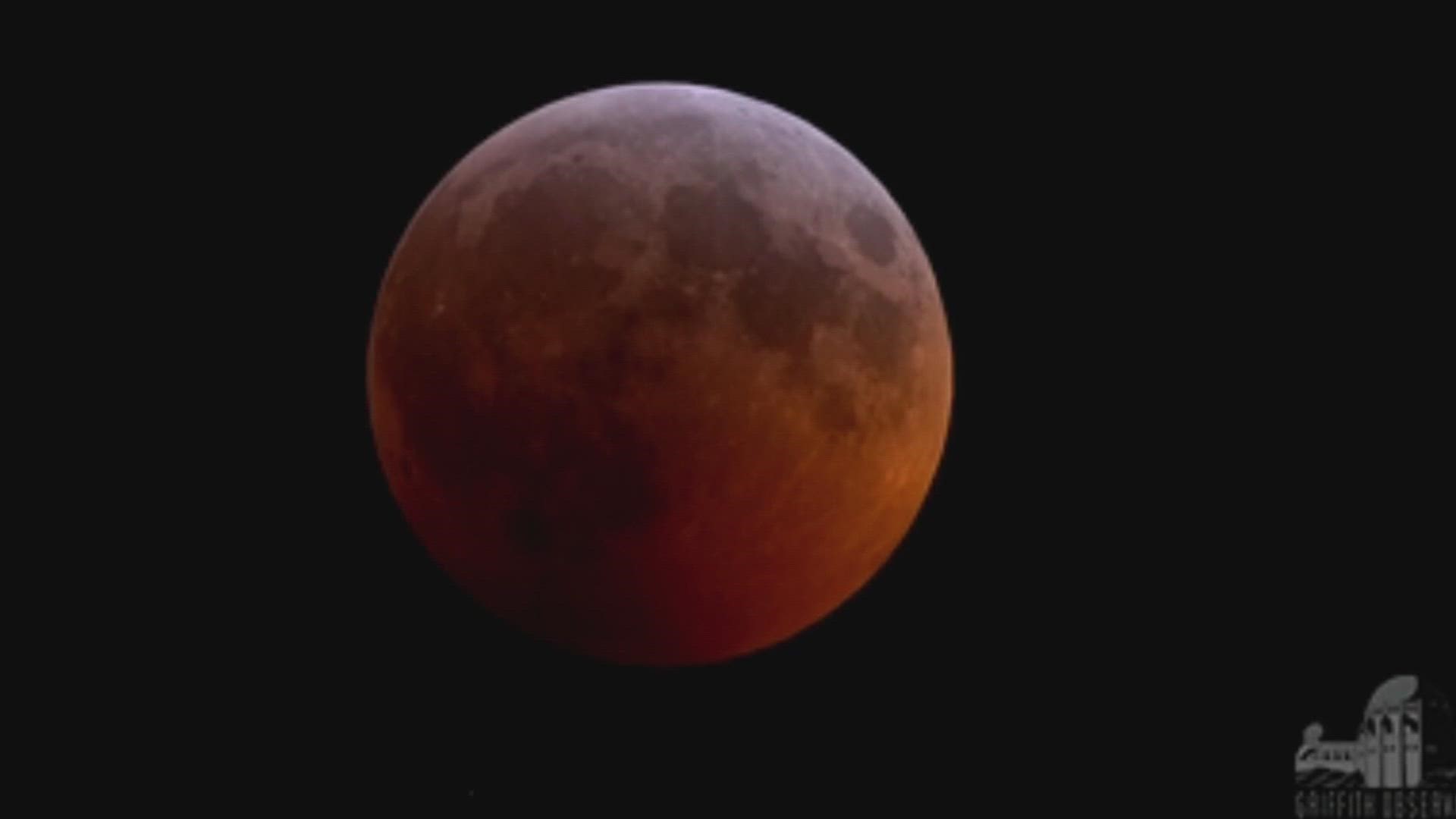SAN DIEGO — Something incredible will be happening in the sky above San Diego in the early morning hours Tuesday. CBS 8 talked with an expert about what to expect.
“The eclipse of the moon affects nothing else but our eyes. If you were standing on the moon, of course, you would see the earth passing in front of the sun and you’d get a wonderful solar eclipse, but from here on the earth, we see the moon as it appears to be disappearing as it passes into the shadow of the earth,” said Dennis Mammana, an astronomer who now lives in Borrego Springs.
But for 18 years, he was the resident astronomer at the Ruben H. Fleet Science Center. He says totality will last about an hour and a half.
“The eclipse will begin at 1:08 a.m. and that’s when the eastern side of the moon will start to show a bite taken out of it. By 2:16 a.m., you’ll have totality where the moon is completely inside of the shadow of the earth and that will continue until about 3:41 a.m.,” said Mammana. “And then the moon will come out of the shadow of the earth and it will look like the whole thing is reversing itself and by 4:49 a.m., the eclipse will be over.”
Mammana tells us that during totality, the moon may take on a deep reddish color, known as the ‘blood moon.’ But it all depends.
“If the atmosphere is fairly clear at that time, reddened sunlight will pass through the atmosphere unaffected, and it will make the moon appear very red,” said Mammana. “But if there is a lot of dust or volcanic ash or cloud cover in the atmosphere of the earth, we could have a very dark moon.”
The big question is whether San Diego’s weather forecast will cooperate or be too cloudy for good visibility.
“Whether there are clouds or not, I would highly recommend getting out there to watch the show,” said Mammana. “Hopefully, if the clouds are thinner, you’ll be able to see it fairly well, but you know, weather is weather and we take what we can get.”
If the clouds block our view here in San Diego, it’ll be while until the next one.
“We from Southern California will not be seeing a total lunar eclipse until the year 2025,” said Mammana. “So if you miss this one, you’ve got a few years to wait for a total eclipse unless you’re willing to travel around the world to see it elsewhere.”
WATCH RELATED: Longest partial lunar eclipse in nearly 600 years (Nov. 2021).
HERE ARE MORE WAYS TO GET CBS 8:
ADD THE CBS8+ APP TO YOUR STREAMING DEVICE Roku | Amazon Fire

